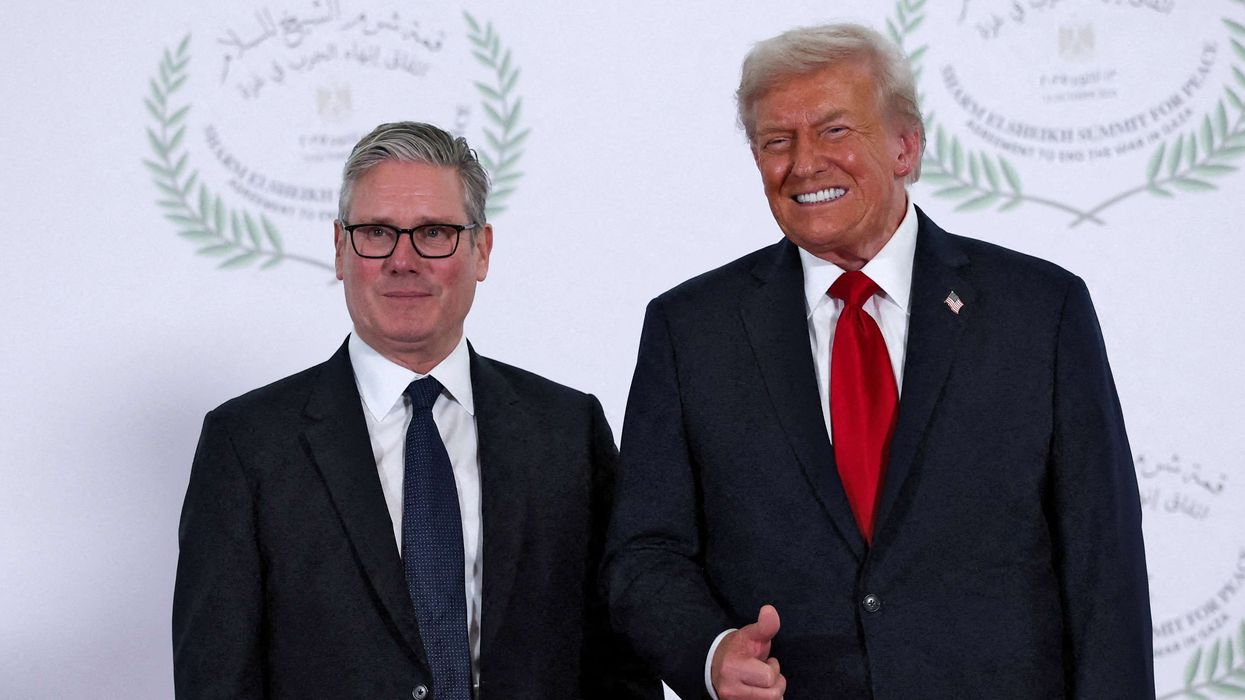“WELL, Rameshbhai,” murmured the medic, gently adjusting the patient’s pillow, “your near and dear ones have asked me to have a word with you.
“They are grateful for the large inheritance you are leaving. It’s not about the money. It’s just that they don’t want you to suffer any more. They have the documents ready. All you have do to sign them. They will then ‘do the needful’. They can make all your pain vanish in a second. They want to show their love for you.”
Greater love hath no man (or woman) than someone willing to lay down a relative’s life in pursuance of Kim Leadbeater’s Terminally Ill Adults (End of Life) bill. It is a piece of legislation that would supposedly “give dying people, under stringent criteria, choice, autonomy and dignity at the end of their lives”.
The second reading of the bill was passed by the Commons last Friday (29) by 330 votes to 275, which shows MPs are as divided on this issue as the rest of the country.
The answer you get in opinion polls depends on the question.
If the question is, “Would you support the principle of assisted dying for a terminally ill patient in intolerable pain with fewer than six months to live?”, you might get a yes.
But the answer might be quite different if the question is, “Would you – yes, you – like to be pushed in front of a speeding train if you wanted to end it all?”
All right, let’s not be too brutal: “Honestly, Rameshbhai, you won’t feel a thing. We will give you some pills and we promise you will find peace.”
The British Asian community, which has so far tended to look after elderly folk at home, hasn’t been consulted at all about assisted dying.
Leadbeater, the Labour MP for Spen Valley – her MP sister Jo Cox was murdered by a neoNazi in 2016 – gave the Commons examples of people who were denied assisted dying.
Barry GardinerFor example, “Warwick,” she told the Commons, “was married to his wife Ann for nearly 40 years. She had terminal peritoneal cancer, which meant she could not breathe properly. She spent four days gasping and choking, remaining awake throughout despite being given the maximum dose of sedatives. She eventually died of suffocation. She had begged Warwick to end her life, but as he stood over her with a pillow, he could not do what she asked as he did not want that to be her final memory of him. Ann had excellent palliative care, but it simply could not ease her suffering.”
She gave the cost for those who chose Dignitas: “If they have £10,000 or £15,000, they can make the trip to Switzerland or elsewhere but, because of the current legal position, it is often a deeply distressing and very lonely experience, shrouded in secrecy, with people feeling like criminals as the fear of prosecution hangs over them.”
Several MPs raised legitimate concerns, among them Danny Kruger, the Tory MP for East Wiltshire.
“The point about process is that this bill is too flawed; there is too much to do to it to address in committee,” he argued.
He didn’t mince his words: “The likelihood is that we would see a new branch of medicine spring up, like the medics I met in Canada. These medics ... are specialists in assisted death and personally kill hundreds of patients a year in their special clinics.”
Richard Burgon, independent member for Leeds East, said: “One thing that concerns me is societal or systemic coercion. At the moment, elderly people in our society pay thousands of pounds a month to be in a care home. What reassurances can my honourable friend give that an elderly person in a care home who has been given six months to live would not think, ‘I’m a burden. I have been given six months to live. If I end my life now, I can save my family between £25,000 and £55,000.’ That really concerns me.”
Another independent MP, Shockat Adam, representing Leicester South, remarked: “As a medical professional who is surrounded by even more senior medical professionals, I know we can all miss things when there are tangibles in front of us – the shadows on xrays and the markers on blood tests. As professionals, we miss things that can be seen. What security will we have that we can pick up things that we cannot see, like coercion?”
Blair McDougall, Labour MP for East Renfrewshire, said: “I started the debate where she is now, but I have moved to opposing the bill by the stories I have heard of disabled people who have had ‘do not resuscitate’ put on their medical records without their permission, or who have been stopped by strangers in the street and been told, ‘You would be better off dead.’ ”
Barry Gardiner, the Labour MP for Brent West, who has many Asians in his constituency, commented: “My concern is she has focused today on the individual and the individual choice, but we are here to legislate for society as a whole.
In legislating, what we are saying if we pass the bill is it is ok to take that choice and there will be some people who have six months of their life to go who will then feel, ‘Ought I to do this? Is this something that I now should do?’
“That brings into play a whole set of considerations – ‘Is it better for my family? Is it financially better for my family?’– in ways that, at the moment, are out of scope. Rather than simply focusing on the individual suffering, which we all recognise is acute, we must broaden the debate to the impact that the legislation will have on society as a whole.”
Saqib BhattiDiane Abbott, Labour MP for Hackney North and Stoke Newington, and the ‘mother of the House’, pointed out: “If the bill passes, we will have the NHS as a 100 per cent funded suicide service”.
Robert Jenrick, MP for Newark who lost to Kemi Badenoch in the Tory leadership contest, made sense when he declared: “Bad law on trivial things is bad enough – I have seen a lot of that in my time in the House – but bad law on matters of life and death is unforgivable.”
Dr Simon Opher, Labour member for Stroud and a GP for 30 years, revealed: “A lot of patients who are dying of cancer ask whether we can curtail their life and finish it a bit early.
“I have had two patients go to Dignitas on their own, without family members... ...We have been discussing giving a double dose of morphine. I think that almost all doctors in terminal care have probably done this – doubled the dose of morphine knowing that it might curtail the patient’s life. That is a big fudge.”
Saqib Bhatti, Tory MP for Meriden and Solihull East, commented: “I have yet to be convinced that the legislation has sufficient safeguards in place. On slippery slopes, take Canada as an example – there, someone does not even have to have a terminal or fatal illness now; mental illness will be an acceptable reason for assisted suicide in 2027.
“I worry that in the future, we will look back at this, after there has been abuse or coercion of some of the most vulnerable people, and we will come back to the House to discuss the damage that we have caused.”
The British Asian voice on the bill, both for and against assisted dying, should be heard before it becomes law.













